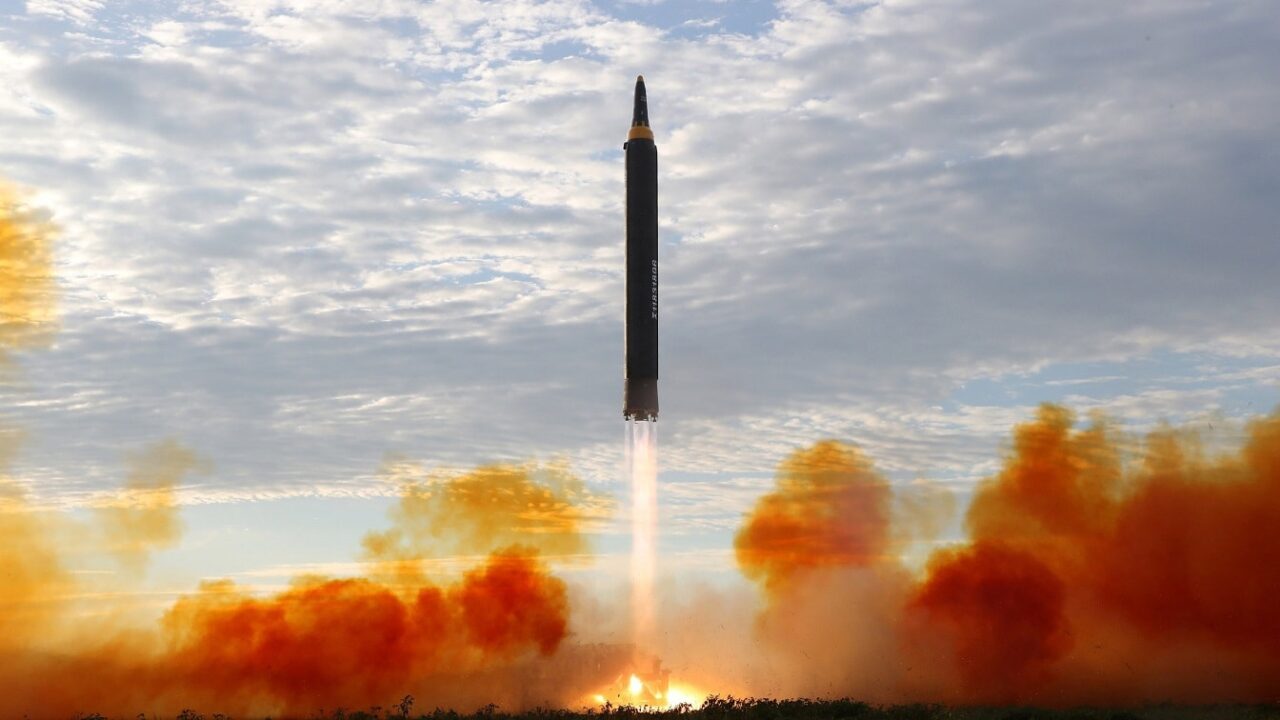The impact of Russia’s invasion of Ukraine will reverberate across the international system for years and possibly for decades.
(Subscribe to Our YouTube Channel Here. Check out More 19FortyFive Videos Here)
While the Korean Peninsula sits on the opposite side of the continent, the prospects for war and peace are nevertheless affected by the continued fighting in the Donbas. How has the war changed the Republic of Korea’s security environment, and what might the future hold for the geopolitics of Northeast Asia?
Wars Still Happen
The biggest legacy of the Russia-Ukraine War is that, apparently, countries still invade one another with large mechanized armies in an effort to conquer territory and impose political outcomes.
Much of the post-Cold War settlement – and indeed much of the second half of the Cold War – seemed to suggest that such wars were a thing of the past. It now seems that this was overly optimistic. If Russia succeeds in holding onto even part of Ukraine, it could offer a precedent for other, wars to follow, up to and including a different territorial settlement on the Korean Peninsula.
Mass and Maneuver
Russia’s war on Ukraine has seen any number of profound technological innovations, but it has also demonstrated that the core aspects of the modern combined arms military system remain sound. Infantry, armor, and artillery have all played critical roles in the conflict thus far, with artillery seeming to resume the primacy of place it established in the First World War. While North Korea has undoubtedly allowed its conventional military to decay, it still retains huge artillery and tank inventories and an enormous infantry arm.
Perspectives that saw massive combined arms offensives as a thing of the past need to at least reckon with the continued existence of North Korea’s army.
The New Strategic Situation
Korea’s neighborhood has also changed. We don’t yet know the outcome of Russia’s war on Ukraine, but we do know that Russia has effectively been closed out of many of its traditional theaters of operation in the West. The Baltic is now a NATO lake. The battered Black Sea Fleet may face additional attrition before the war is over, and could even lose its base at Sevastopol. Finnish accession to NATO has put Russia’s Arctic bases under even tighter NATO surveillance. Together, this could force Russia to re-orient its military and strategic attention to the Pacific. Worse, the apparently tight relationship between Moscow and Pyongyang could lead to broader cooperation to reinvigorate North Korea’s economy and make its conventional forces more lethal. Of course, such a relationship would take some time to pan out given Russia’s difficulties in Ukraine, but it does open up space for the Pyongyang regime.
The Nuclear Equation
The war may also change the nuclear equation on the Korean Peninsula. It is no secret that Russia’s attack on Ukraine has unsettled the global non-proliferation regime, representing a direct assault by a nuclear power upon a non-nuclear power that had given up its nuclear assets in return for broad security considerations. Moreover, Russia’s various nuclear threats have re-opened the discussion of tactical nuclear warfighting. Under these conditions, it is hardly surprising to find voices in Korea and in the United States arguing for a rethink of the RoK’s policy on nuclear weapons. Developing nukes would represent a monumental step for Seoul, with repercussions across the region, but Seoul may nevertheless feel the need to proceed with a nuclear program if it feels the U.S. security guarantee has weakened.
What Next?
It is perhaps excessive to claim that the Russia-Ukraine War has changed everything everywhere. However, the security of the international systems remains deeply interlocked; when war stresses a network of relationships in one part of the world, it is felt across the rest of the globe. Northeast Asia has yet to suffer from many effects the war has had on Europe, including inflation and energy shortages.
Still, the conflict has nevertheless redefined how Seoul will navigate its security environment.
Author Expertise and Experience
A 19FortyFive Contributing Editor, Dr. Robert Farley has taught security and diplomacy courses at the Patterson School since 2005. He received his BS from the University of Oregon in 1997, and his Ph. D. from the University of Washington in 2004. Dr. Farley is the author of Grounded: The Case for Abolishing the United States Air Force (University Press of Kentucky, 2014), the Battleship Book (Wildside, 2016), Patents for Power: Intellectual Property Law and the Diffusion of Military Technology (University of Chicago, 2020), and most recently Waging War with Gold: National Security and the Finance Domain Across the Ages (Lynne Rienner, 2023). He has contributed extensively to a number of journals and magazines, including the National Interest, the Diplomat: APAC, World Politics Review, and the American Prospect. Dr. Farley is also a founder and senior editor of Lawyers, Guns and Money.

